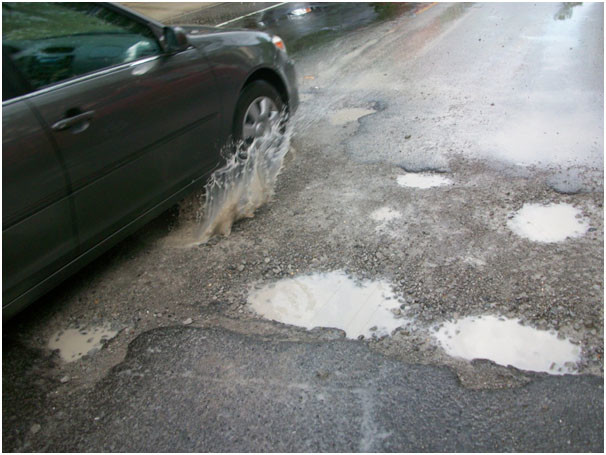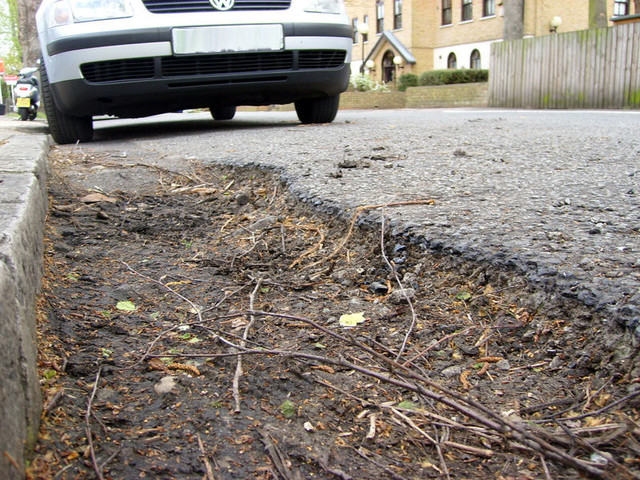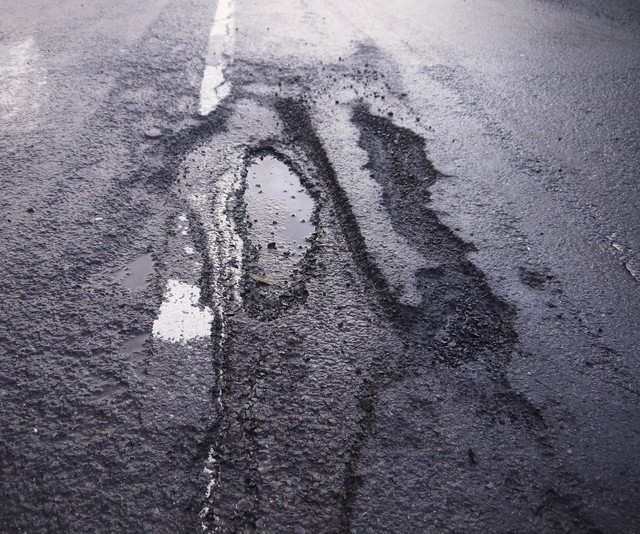Long regarded as one of the biggest causes of stress for drivers, potholes and other bumps in the road could be good for your car if new research is to be believed.
Engineers from Virginia Tech’s College of Engineering in the US have come up with a solution to harvest energy from the car via the suspension to improve fuel economy and reduce waste.
According to the scientists, between only 10 and 16 per cent of the fuel consumed by a car is used for actually driving, while the rest is wasted through heat, vibrations and other means.

Lei Zuo, associate professor of mechanical engineering at the college, has pioneered a new shock absorber system which can redirect kinetic energy from the road back into the car.
The energy-absorbing suspension works by translating the vertical motions of the car into rotational motion, which turns a generator to create between 100 and 400 watts of energy on average roads.
By comparison, the average mobile phone call uses about one watt of energy, and transferring it directly into the car’s electric devices reduces demand on the engine and improves efficiency.

Zuo’s team estimate that the new suspension system can increase fuel efficiency by up to five per cent, which could result in annual fuel savings of between £8 billion to £12 billion.
He and his students have already tested the shock absorber on roads, and have been able to harvest around 60 per cent of the available energy, with an aim to improve to 85 per cent soon.
Moreover, they claim that the device is entirely retrofittable to the vast majority of vehicles and “can be integrated in the car directly without changing anything in the car”.

Professor Zuo also said he hopes that the technology will be able to address the concerns of both drivers and car manufactures, who he says often have different priorities.
“When we present this to drivers, they ask, how much can you improve the fuel efficiency? How soon can I get my money back?” he said.
“From the car manufacturer's side, they ask another question: Can you replace my commercial shock absorbers? Can you give me better suspension performance?”

The team are reportedly first focusing on applications for large commercial vehicles, with devices for commuter cars soon after, though no indication of when they could be available has been made yet.
Last year, however, Audi’s R&D chief Ulrich Hackenberg announced that the company is working on a similar system for its production cars, though it’s still firmly in the development stage.



